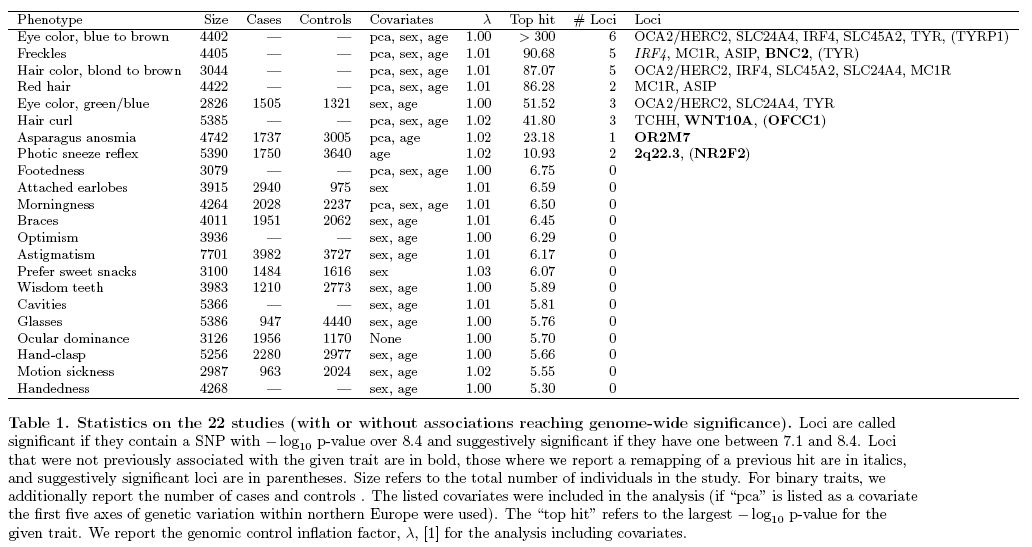They examined 22 common traits in over 10,000 participants who volunteered to have their personal genetic information included, to look for associations among people who prefer salty over sweet snacks, who have the ability to smell asparagus in urine and who say they have photic sneeze reflex - they sneeze entering bright light. Sounds fun, right?
It sure does, and critics might gripe about taxpayer money being used for curly hair studies, much less whether or not there is a genetic link to optimism, but this is a private company and we have all wondered why some people prefer ice cream over Doritos. Yayyyy, capitalism.
The concern is that 23andMe used current rules regarding consent to gather the data, which was fine for them, but PLoS Genetics is a peer-reviewed journal (and open access, so you can read the entire study at the citation below) so there was some concern internally in how they were going to review the ethics of the study, and the article ended up including this statement
we sought and were granted an independent determination by a commercial Institutional Review Board (IRB) that this research did not involve human subjects under the Department of Health and Human Services definition, 45 CFR 46.102(f). This definition states that research performed on anonymized data with no contact between investigators and participants does not constitute research on human subjects.so now there is some interest in getting web-based studies covered so journal editors will not have to do manual reviews of the ethics in studies. The IRB exists to monitor studies in order to protect participants' overall rights but because this was done over the World Wide Web we know and love, 23andMe felt, quite rightly it turns out, they were exempt under current rules. This was not a thrill for PLoS Genetics editors because without a blanket standard, they were going to have to review the ethics of the study. As they discuss in an editorial (Consent and Internet-Enabled Human Genomics) they've had better times because, while the study was excellent quality,
publication was delayed for six months while the editors sought a variety of opinions on three issues: ethical review, consent, and data access.The good news is a quality company has uncovered the loophole but it will need to be resolved and we will have to get some ethical guidelines in place before unethical companies move into this business. Basically, as the rules exist today, any researcher who does not actually meet participants is exempt from IRB rules on basic human rights. 23andMe customers are primarily early adapters, so it's not a big worry for them because they know what they are signing up for, but there is always concern about consent when dealing with people in foreign countries and also with those who have varying levels of education.
Back to the important issue, who likes salty snacks versus sweet? It was non-committal so maybe there is nothing to it.

Citation: Eriksson N, Macpherson JM, Tung JY, Hon LS, Naughton B, et al. (2010) Web-Based, Participant-Driven Studies Yield Novel Genetic Associations for Common Traits. PLoS Genet 6(6): e1000993. doi:10.1371/journal.pgen.1000993





Comments